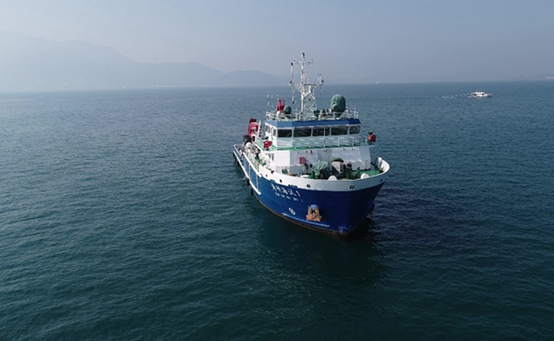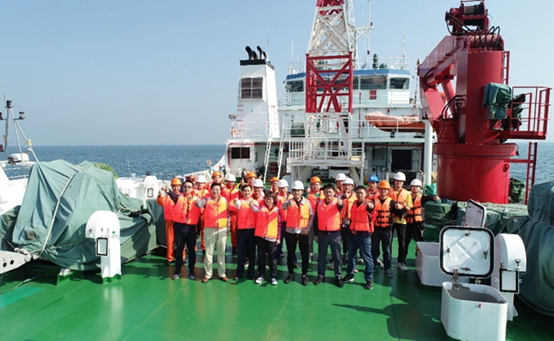A collaborative platform for autonomous underwater vehicles (AUVs) developed by Peng Cheng Laboratory and with the support of Tsinghua SIGS successfully underwent its first sea trial on November 23-26. The sea trial was held on the “Qing Yan 1” expedition ship, jointly owned by Tsinghua University and Shenzhen.
During the trial, the project team verified the navigation system of the specifically designed AUV, its underwater acoustic communications with surface vessels, and the Wi-Fi point-to-host communication system between surface vessels and the expedition ship. With the help of the AUV, the team successfully collected the temperature, salinity, conductivity and other environmental parameters of the testing area.
The sea trial lays a foundation for the future development of a fully functional collaborative platform for underwater AUVs and remotely operated vehicles (ROVs). It verified the core technologies of constructing a collaborative platform for multiple heterogeneous underwater robots, and indicates areas for further research and development.
Mei Tao, project leader and assistant director of the Peng Cheng Laboratory was responsible for the convening of the sea trial. Professor Cui Junhong, Tsinghua SIGS Lecturer Li Sunwei and researchers from the Shenyang Institute of Automation, Chinese Academy of Sciences participated in the sea trial.

Photo of Qing Yan 1 Expedition Ship

Photo of the sea trial panel
Article by Li Sunwei
Edited by Karen Lee


